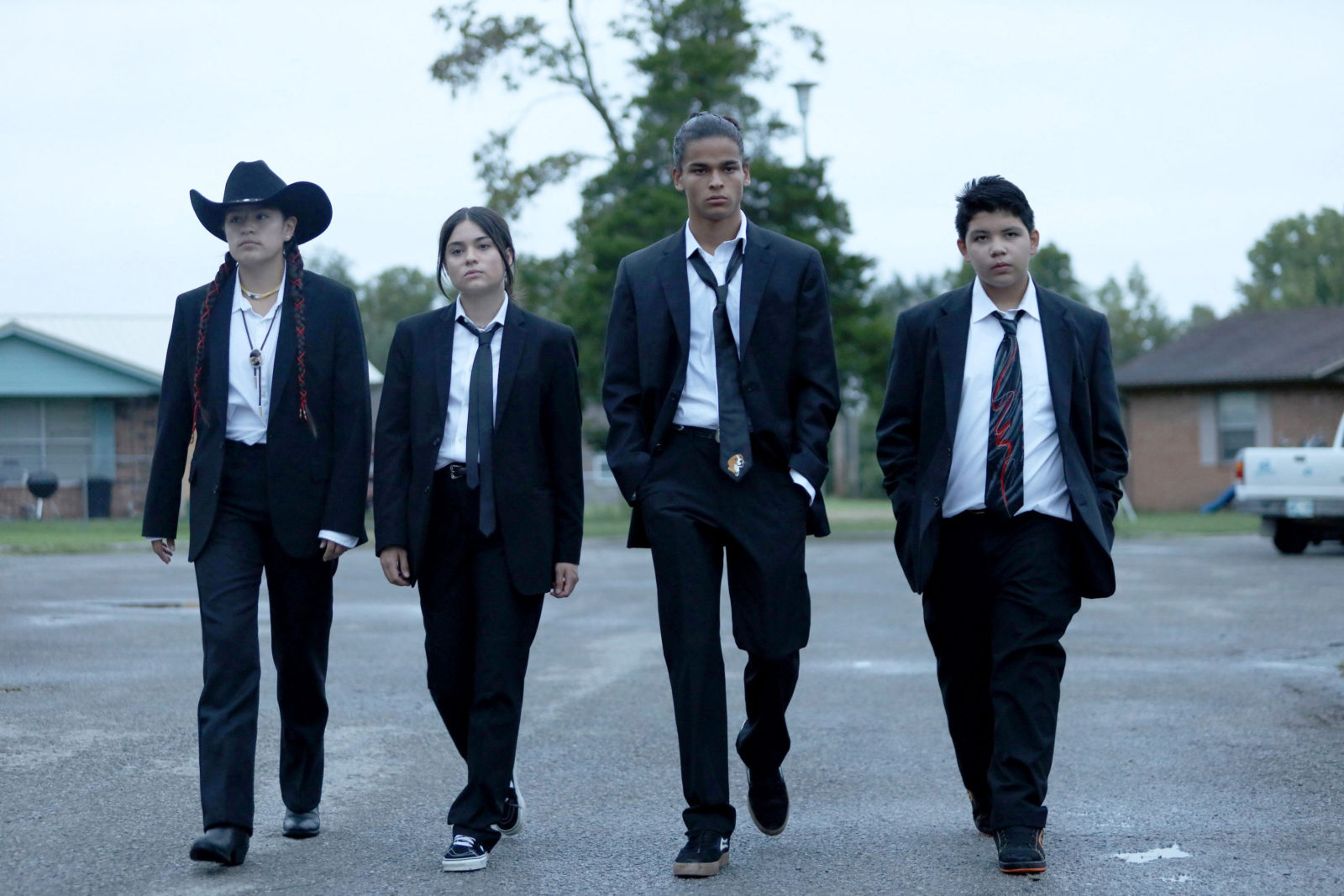“Complexity” is the Tip of the Melting Iceberg

FX’s Reservation Dogs, nominated earlier this week for a Golden Globe award for Best Musical/Comedy Series, depicts complex Native characters – and showcases why climate action in reservation communities is so hard: because we have a difficult time surviving day-to-day.
Childcare and co-workers in COVID quarantine or isolation. Power outages from wildfires and windstorms. Internet disruptions that prevented communication and progress because of lackadaisical information technology access. Drug addicted family members in denial, threatening family members, and stealing weapons. An actual stalker harassing me at my place of work, my spouse injured, an in-law in cancer treatment. Medication oversight for my elderly parents. Yeah, 2021 wasn’t an ideal year for my climate advocacy. This could be the clinical definition of “burnout.”
I have a few select TV shows and movies that I watch to help me cope with my stress and escape my reality. Marvel movies, Game of Thrones, Lord of the Rings. Sweeping, epic dramas. Nothing too close to my actual reality, because who wants all that noise? But after months of hearing family and friends insist, “You’ve gotta watch “Reservation Dogs [Rez dogs]!”, I was starting to get worn down. They would laugh and shake their heads as they recalled scenes from the show co-created and co-produced by Sterlin Harjo and Taika Waititi (yes – THAT Taika Waititi). “I cracked up when they showed IHS [Indian Health Service]!” “Dallas Goldtooth is a ‘spirit guide’!” “They stole a chip delivery van!” But still, I held out, busying myself with my day-to-day grind.
Then my sister told me that it was almost “too real,” and I knew I had to watch it. Because for the first time, I felt my community hadn’t been stereotyped, but seen. Seen, in all our complexity. I haven’t watched it all, but as I started to, I realized why I couldn’t focus on my climate advocacy work, which has literally been my sole motivation for years. It was because as a Native woman, I am overrun with holding everything together within my circle of influence. And honestly, it gets pretty tough. How can I be a better ancestor when I am struggling to make a home-cooked meal for my children tonight?
I’ve never had a difficult time finding motivation, but lately, climate advocacy truly does feel futile. Seriously. My Reservation community lost our Recycling Center due to the fires of 2020. It was burned down and there are no plans to resurrect it. Our Tribal Council isn’t reinstating it and there is no recycling pick-up for where I am in my County. As a result, I have to drive a minimum of 50 miles (one-way) just to recycle cardboard. Fifty. Miles. Should I call my Legislator? Senator? County rep? Nope, because I’m on the “Rez.” I could call my Tribal Council rep. But they were the ones who decided to stop the recycling pick-up in the first place. Tribal Councils like mine are consistently in crisis-response mode. Like me. That’s one reason why climate commitment and climate action might not be so strong in communities like mine.
Indigenous nations were the first red-lined communities on this continent, and that history of institutionalized socioeconomic inequality has been woven into the fabric of our everyday lives. It has been carefully crafted over hundreds of years to be disproportionate and unequal. My children have inherited a community where we all experience an increased vulnerability to climate change without the pre-existing tools or support needed to adapt to it. This fact is well documented in the 2021 Status of Tribes and Climate Change Report and was reported upon frequently during this month’s 26th Conference of Parties (COP 26) in Glasgow, Scotland, which will be known as yet another disappointment for Indigenous Peoples.
How can we overcome this? One day at a time? Individually, there are still many things I can do. Save up the cardboard and take a trip. On the way, pick up more candles for the next power outage. Buy organic and locally-produced after-school snacks for the kids and plan one more plant-based meal outside of our deer meat and salmon schedule. Cancel the auto-shipments from retailers and plan a masked-up and hand-sanitized trip to Goodwill to clothe my youngest (who grew two shoe sizes this year). The nearest clothing department store is further than the cardboard site anyway. We will also enjoy the natural landscapes around us – while we still can – and bring a trash bag to pick up some litter on our next walk. These actions most likely won’t solve cancer, end drug addiction, or reduce the suicide rates in Indian Country or on my Rez, but maybe it will help show my kids and my family that this isn’t a place to flee or escape from, but a place worth improving.
And when it comes down to it, when we are talking about climate change, isn’t every place a place to improve? Maybe I’ll even call my Tribal Council rep. After all, icebergs and Rez dogs both deserve a fighting chance.
Amelia is a Public Voices Fellow with The OpEd Project and the Yale Program on Climate Communication. She serves as the Executive Director for the Center for World Indigenous Studies, a nonprofit organization advancing the interests of Indigenous peoples through research, education, and public policy.

